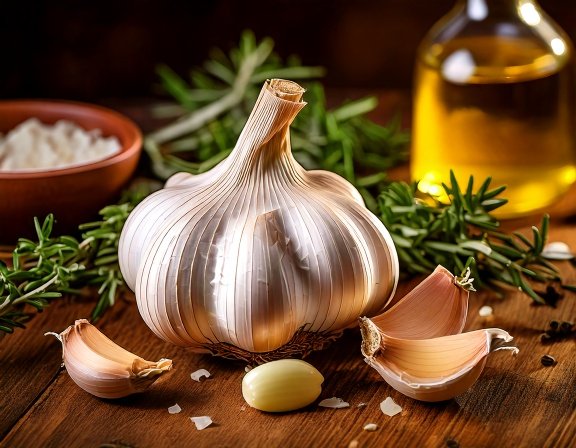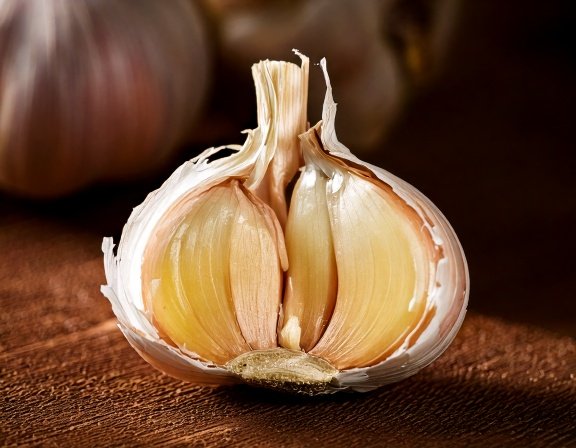Garlic for Immunity: From Garden to Natural Cold Fighter

Download: Sugar, Mood and Hormones PDF
The Sweet Truth About What Sugar Really Does to Women’s Bodies.
Download Free
Garlic isn’t just a flavorful kitchen staple—it’s one of the most potent immune-boosting plants known to humankind. Used for millennia to fight colds, flu, and infections, this humble bulb continues to earn scientific praise for its antiviral, antibacterial, and antioxidant properties. Let’s uncover why garlic deserves a permanent spot in both your garden and your wellness routine.
Best Garlic Immune Support Supplements
Shop trusted aged garlic capsules, allicin tablets, and whole-bulb immune blends for extra winter protection.
Shop Garlic Supplements at Amazon
What Makes Garlic So Powerful?
Garlic (Allium sativum) isn’t just a kitchen staple—it’s a botanical powerhouse with a history rooted in both ancient medicine and modern science. Its distinctive aroma and flavor come from unique sulfur compounds, most notably allicin, released when garlic is crushed or chopped. Researchers credit these natural chemicals for garlic’s remarkable antimicrobial, antiviral, and antioxidant properties, setting the stage for its long-standing use as a natural remedy for everything from infections to inflammation.
Garlic has been recorded in ancient Egyptian texts, Greek medical writings, and even used as rationed medicine for soldiers during World War I for wound infections. It had been in use in Ayurvedic, Chinese and Mediterranean medicines for centuries.
Garlic belongs to the Allium family (like onions and leeks). It is rich in allicin – the sulfur compound responsible for its healing effects.

Immunity and Health Benefits of Garlic
When it comes to supporting immune defenses and overall health, garlic stands out as one of nature’s most widely studied superfoods. Clinical research shows that regular garlic intake may help the body fight off colds and flu, lower blood pressure, improve cholesterol levels, and even reduce inflammation markers. Its broad-spectrum antimicrobial action helps protect against common pathogens, while antioxidants in garlic support healthy immune cell function and reduce oxidative stress.
Key Benefits of Garlic
- Immune Support: Stimulates white blood cell production to help the body defend against viruses and pathogens.
- Antiviral & Antibacterial: Naturally combats colds, flu, staph, and strep infections, helping shorten illness duration.
- Anti-inflammatory: Calms chronic inflammation, supporting joint comfort and overall immune regulation.
- Heart Health: Helps lower blood pressure, balance cholesterol, and improve circulation for cardiovascular wellness.
- Respiratory Relief: Opens sinuses, soothes sore throats, and supports clear breathing during seasonal congestion.
How to Use Garlic as a Natural Cold Fighter
Harnessing garlic’s immune-boosting effects is simple—and can be done right from your kitchen. Whether you prefer raw garlic, infused oils, or homemade remedies like garlic tea, timing and preparation matter for maximum benefit. This section breaks down the most effective (and palatable!) ways to use garlic for cold relief, tips for dosing, and when to start for best results as sniffle season rolls around.
How to Use Garlic Medicinally
- Raw Garlic: The most potent form. Crush or chop a clove and let it sit for 10 minutes before eating to activate allicin, garlic’s key healing compound. Add to soups, salads, or spread on toast for immune defense.
- Garlic-Infused Honey: Combine crushed garlic cloves with raw honey in a jar. Let infuse for 3–7 days. Use 1 teaspoon daily or as needed to soothe sore throats and strengthen immunity.
- Garlic Tea: Simmer crushed garlic with lemon, ginger, and a pinch of cayenne for 10 minutes. Strain and sip warm to relieve congestion and boost circulation.
- Garlic Oil (Diluted): Steep crushed garlic in olive oil for 24 hours, strain, and use externally. Apply to skin for antimicrobial support or use a few drops (lightly warmed) for ear discomfort. Always dilute and test on a small patch first.
Tip: Garlic’s healing compounds are most active when fresh. Avoid high-heat cooking if using for therapeutic benefits.
This herbal recipe is shared for educational purposes only, based on traditional use and available sources. It is not medical advice. Please consult your healthcare provider before use, especially if pregnant, nursing, or on medication.

Garlic Safety and Considerations
While garlic offers impressive wellness perks, it’s important to use it wisely—especially for those with sensitivities or on certain medications. Learn about potential side effects like digestive upset, tips for avoiding “garlic breath,” and safety considerations for children, pregnant women, or anyone on blood-thinning medication. This section helps you get the benefits of garlic while minimizing any risks, so you can confidently add it to your immune-support routine.
Garlic Safety & Precautions
- Blood Thinners: Avoid high doses of garlic (especially supplements) if you are taking anticoagulant or antiplatelet medications—it can enhance their effects and increase bleeding risk.
- Digestive Sensitivity: Garlic may cause heartburn, gas, or stomach upset in sensitive individuals or when consumed raw in large amounts.
- Topical Caution: Always dilute garlic oil before applying to skin or ears. Undiluted garlic can cause burning or irritation.
Note: Garlic is a potent natural remedy—start with small amounts and observe your body’s response. Consult your healthcare provider if pregnant, on medication, or managing a chronic condition.

Did you know?
Garlic is one of the oldest cultivated medicinal plants in the world—used by Egyptians, Greeks, Romans, and Traditional Chinese doctors.
Want More Natural Healing Tips?
Subscribe to Health Intel DailyRelated Reads:
References
- National Center for Complementary and Integrative Health (NCCIH). Garlic Overview.
- Ried, K. (2016). Garlic (Allium sativum) as a herbal medicine in prevention and treatment of cardiovascular and metabolic diseases. Journal of Nutrition.
- Ankri, S., & Mirelman, D. (1999). Antimicrobial properties of allicin from garlic. Microbes and Infection.